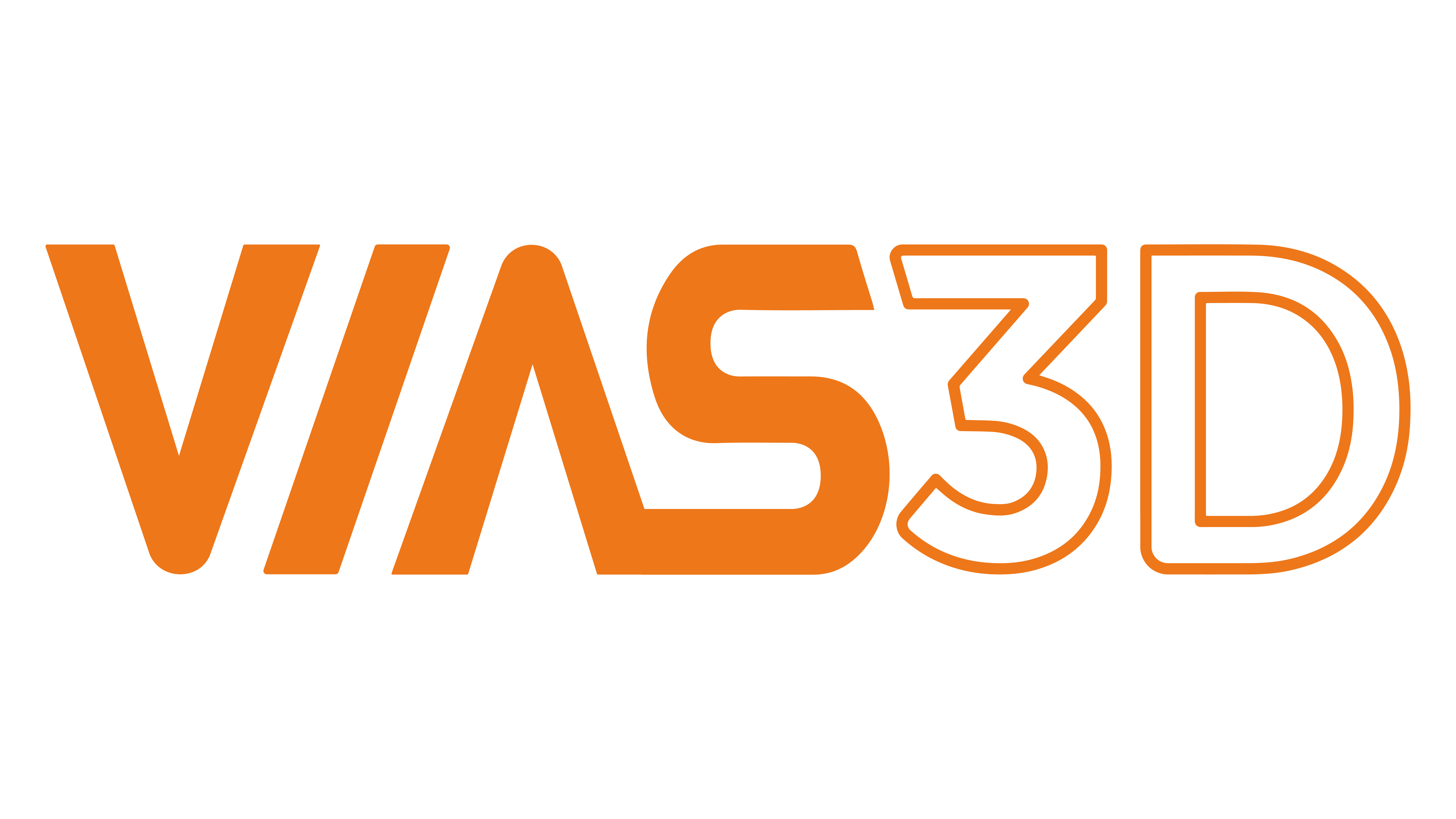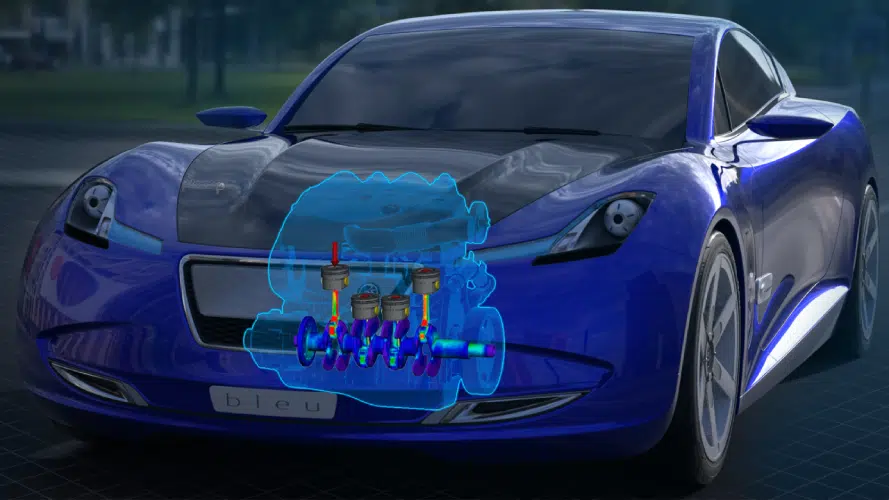In this era of stiff competition, manufacturers need to launch new products, customized as per customer’s requirements in the record time. So much so, timely launch of a new product can make or break the future of a manufacturer. Given this need for speed, the pressure on manufacturers to validate a design is intense. Over the last few years, simulation has emerged as the go-to technology for manufacturers to be first time right by ironing out any bottlenecks at the early design stage itself. With proven advantages, such as the ability to virtually test innovative concepts, lowering material cost and improving sustainability by light-weighting, simulation has proved to be a game changing technology for the designers. That said, manufacturers need to choose the right simulation tool to derive the maximum benefits.
Abaqus: Powering Realistic simulation
Versatile nonlinear Finite Element Analysis (FEA) software, Abaqus has earned the reputation of being a powerful suite for realistic simulation to streamline product development and shorten time to market. Being a general-purpose software allows Abaqus to help offer solution for routine and sophisticated engineering problems covering a vast spectrum of industrial applications. From oil and gas, to life sciences and automotive as well as aerospace, various industries have been able to bring efficient design into the market, while eliminating expensive prototype testing, reducing expensive downstream errors and minimizing costly late-stage re-work.
Several best-in-class companies have taken advantage of Abaqus solution to design a fail-safe solution, gain a competitive advantage, and reduce costs and inefficiencies. Key highlights of the solution include:
Easy-to-use environment: A solid software, Abaqus is simple to learn and enables designers to focus on the design process rather than the technology. It enables users to examine different design options, study their behaviour and evaluate their effect on the product performance. With intuitive software, advanced simulation technology is used automatically and presented in the language of designers.
Streamlined simulation experience: Abaqus is also delivered as Unified FEA Product suite to eliminate the inefficiencies and additional cost due to the use of multiple vendor software products. It enables users to develop custom applications and integrate solutions from Alliance Partners or their own in-house applications. Users can also choose from a variety of customizable extensions or Plug-ins as per specific industry simulation needs. With SIMULIA Abaqus, the users have the advantage of sharing simulation data and approved methods, regardless of their simulation expertise and domain focus, without the loss of information.
Integration with 3D 3DEXPERIENCE platform: Powered by the 3DEXPERIENCE platform, SIMULIA Abaqus empowers users to experience connected, collaborative simulation on-premise and on-cloud. This enables customers to eliminate traditional simulation silos due to the use of specialty tools. The platform serves the need of customers to enable extended teams to build and execute the most complex simulation models as part of high-value end-to-end industry processes. The platform ensures that simulation can be taken from a vertical engineering function to a horizontal business process throughout the enterprise.
Comprehensive solution for safe and durable design: Manufacturers can ensure fail-safe design with solid Abaqus suite delivered with FE-safe for durability and fatigue simulation and Tosca for shape and topology optimization.
To ensure effective outcomes, address specific industry challenges and improve efficiency, Abaqus product suite includes:
ABAQUS/STANDARD: It is ideal for static and low-speed dynamic events where highly accurate stress solutions are critically important. It has proved extremely beneficial in several application scenarios, such as sealing pressure in a gasket joint, steady-state rolling of a tire, or crack propagation in a composite airplane fuselage. With the ability to analyze a model both in the time and frequency domain, the industrial equipment and manufacturing industry can easily comprehend how the product withstands different real-life behavior.
Abaqus/Explicit is specifically suited for high-speed, nonlinear, transient dynamic events. It has delivered proven results in applications related to consumer electronics drop testing, automotive crashworthiness, and ballistic impact. Designed for production environments, Abaqus/Explicit can effectively handle severely nonlinear behavior such as contact. The engineers can efficiently analyze quasi-static events, such as rolling of hot metal and slow crushing of energy absorbing devices.
A great advantage is that Abaqus/Explicit is fully integrated with Abaqus/Standard, implying results of either can be used as the starting conditions for continuation on the other. This gives manufacturers greater accuracy to predict outcomes in static, low-speed dynamic events, as well as those portions of the analysis where high-speed, nonlinear, transient events dominate the solution.
Abaqus Multiphysics: Over the years, Abaqus has proved instrumental in addressing several Multiphysics problems for many engineering applications on products and engineering projects in use today. Included with significant Multiphysics capabilities, Abaqus empowers engineers and researchers with accurate insights for different simulation requirements. It offers deep insights for various engineering disciplines:
- Fluid structural interaction: Abaqus provides engineers and scientists to simulate a class of problems where the interaction between structures and fluids is important. Key applications include accurate simulation of airbags for occupant safety, tire hydroplaning, wave loading on offshore structures, etc.
- Hydrostatic-Fluid-Mechanical interaction– With Hydrostatic-Fluid-Mechanical capability, the industries can examine the pressure-volume relationship of the enclosure and the energy inside the enclosed fluid. For instance, air bags, seat cushions, athletic shoes, partially filled tanks and other containers, air springs, etc.
- Piezoelectric-Mechanical interaction: Piezoelectric have additional material properties linking electric flow to local structural distortion. With Piezoelectric-Mechanical simulation capability, Abaqus proves instrumental in applications where shape control through electrical means is desired. Key applications include accelerometers, MEMS devices, medical surgical equipment, control devices, etc.
- Structural-Acoustic interaction: Abaqus integrates noise simulation within the finite element solver, allowing fully coupled structural-acoustic simulations to be performed within familiar Abaqus workflows. With these powerful simulation capabilities, engineers and researchers can analyse noise transmission, radiation, acoustic attenuation or amplification. For instance, Abaqus has empowered automobile manufacturers to achieve optimized design by helping them reduce cabin noise. Abaqus also proves useful in simulating the effects of underwater explosions on ship and offshore structures.
- Thermal-Electric interaction: Many manufacturers of sensitive electronics devices rely on these simulation capabilities to ensure improved efficiency and results in sensitive electronics devices, such as fuses, links, electrical traces, and lightbulb filaments.
- Thermal-Mechanical interaction: With these capabilities, engineers can analyze simple thermal stress, more complex friction-driven heat transfer and even fully coupled temperature-displacement simulation. Many industries from internal combustion engines in Automotive to package reliability in electronics use the capabilities. In addition, it proves useful in manufacturing processes, such as soldering, forging, and extrusion.
- Structural-Pore Pressure: Civil engineers bet big on Abaqus to simulate the behaviour of soil and other natural materials used in the construction of dams, tunnels foundations and other large scale engineering projects. The influence of water on the behaviour of soils under load is extremely complex. Abaqus takes a sophisticated coupled approach to provide simulation results which can be relied on to help provide confidence in design decisions.
Abaqus/CAE: Analyses obtained can be quickly and efficiently created, edited, monitored, diagnosed and visualized using Abaqus/CAE. It supports familiar interactive computer-aided engineering concepts such as feature-based, parametric modelling, interactive and scripted operation, and GUI customization to ensure an easy-to-use yet highly productive environment for users.
With these wide-ranging capabilities, Abaqus is revolutionizing simulation experience by executing the most complex simulation models as part of high-value end-to-end industry processes.
Content Moderated by: Raghavendra Banchhor. (Mailto:[email protected]) Senior FEA Specialist at VIAS3D.
Contact us to know more about how Abaqus can help you in your area of work.






.png)

.png)